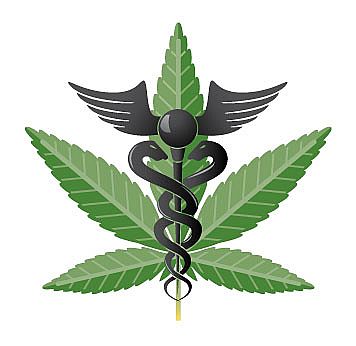Gov. has concerns over federal law
By Andrea K. Walker, The Baltimore Sun
10:45 a.m. EST, March 9, 2012
Gov. Martin O'Malley likely would veto any legislation to legalize medical marijuana because of concerns over whether it would stand up to federal scrutiny, his spokeswoman said Thursday.
His decision comes as states with programs similar to what Maryland is considering have come under fire from federal prosecutors and were forced to suspend all or parts of their programs. His decision could once again kill an effort that has stalled in the General Assembly for years.
Maryland legislators are to begin debating three medical marijuana bills in House of Delegates committee hearings today.
"We have some serious concerns about liability," said O'Malley spokeswoman Raquel Guillory. "Those concerns were raised by U.S. attorneys across the country. Based on those concerns, it is probably likely we would veto any legislation."
Washington Gov. Christine Gregoire recently vetoed parts of legislation in that state after U.S. attorneys said state employees would not be immune to liability for violating the federal Controlled Substances Act, which classifies marijuana as an illegal drug.
In Delaware, Gov. Jack Markell halted implementation of a program that would have distributed medical marijuana through nonprofit centers. He did this after the U.S. attorney there said state workers could be held liable and that possession and distribution of drugs was illegal under federal law even if allowed by a state.
Maryland Attorney General Douglas Gansler's office also expressed concerns about the legality of medical marijuana in a letter to Baltimore County Del. Dan K. Morhaim, the lead sponsor for two of Maryland's bills. Morhaim had asked whether the bills could lead to federal criminal liability.
"The federal law prohibits use and possession of marijuana, as well as distribution and manufacture, without regard to whether the marijuana is ultimately used to treat a medical condition," wrote Assistant Attorney General Kathryn M. Rowe.
Maryland Health Secretary Joshua M. Sharfstein is expected to testify today that his agency cannot support any of the bills, including one that he previously endorsed, according to a draft of his testimony.
"It is hard to imagine putting state employees in a position where they would face criminal liability," Sharfstein said in a phone interview Thursday.
Sharfstein killed efforts to legalize medical marijuana last year when he cited a lack of scientific consensus about the benefits of marijuana and concerns about regulating a program. Instead, the state agreed create a commission to study how to develop and implement a plan to distribute medical marijuana. The General Assembly did amend state law to allow sick people found with less than 1 ounce of the drug to argue medical necessity as a defense.
This year, lawmakers will consider two bills written using the commission's recommendations and introduced by Morhaim, the only doctor serving in the General Assembly.
One of the Morhaim bills, backed by Sharfstein and law enforcement officials, calls for a strictly monitored program in which an educational research institution would be selected to dispense the drug to patients.
"This is something that needs to be done in a proper and rigorous way as you would do with any medication," said Paul Celano, who served on the commission and is president of the Maryland and D.C. Society of Clinical Oncology and chief of medical oncology at Greater Baltimore Medical Center.
The second plan, which Morhaim favors, would allow doctors to prescribe medical marijuana to some patients and create a network of state-sanctioned and supervised dispensaries and growers. The bill is similar to one the Senate passed last year.
Del. Cheryl Glenn, a Baltimore City Democrat, has introduced the most liberal bill, which would allow individuals to grow marijuana. She said former talk show host Montel Williams, who said he smokes marijuana to deal with the pain of multiple sclerosis, will testify on behalf of her bill.
Glenn said she doesn't worry about federal law because it is unlikely to be enforced.
"The federal government is on record saying this is not a priority for them," Glenn said. "If a state has a well-written law they are not going to seek any enforcement action. There is no need for patients with cancer and other diseases that become so debilitating to have to suffer."
Kate Bell, a criminal defense attorney with Kaminkow & Woods in Baltimore, said she has represented clients all over the state who have been arrested for possessing marijuana they used to help ease the pain of an illness. She supports Glenn's bill because, she said, it would make the drug most accessible to patients.
"If you are buying it on the black market you are giving your money to a criminal organization," she said. "I have had sick people who have spent the night in jail. Something has to change."
Baltimore Sun reporter Annie Linskey contributed to this report.
twitter.com:ankwalker





No comments:
Post a Comment